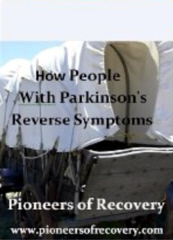JAMA Neurology [2014] Feb 24 [Epub ahead of print] (A.Videnovic, C.Noble, K.J.Reid, J.Peng, F.W.Turek, A.Marconi, A.W.Rademaker, T.Simuni, C.Zadikoff, P.C.Zee)
Complete abstract : http://www.ncbi.nlm.nih.gov/pubmed/24566763
Diurnal fluctuations of Parkinson's Disease symptoms and a high prevalence of sleep-wake disturbances in Parkinson Disease suggest that the circadian rhythm is affecting these symptoms. The circadian rhythm is a roughly 24 hour cycle that regulates physiological processes by various factors such as daylight. Secretion of melatonin from the pineal gland is largely responsible for this regulation. For more information go to Circadian rhythms : http://www.nigms.nih.gov/Education/Pages/Factsheet_CircadianRhythms.aspx.
People with Parkinson's Disease have been found to have blunted circadian rhythms. The differences and the range of secretion of melatonin from the pineal gland were found to be lower in Parkinson's Disease than in people that do not have Parkinson's Disease. Compared with people who had Parkinson's Disease who did not have excessive daytime sleepiness, people with excessive daytime sleepiness had significantly narrow ranges of melatonin secretion.
Overall Parkinson's Disease symptoms and duration of symptoms were not significantly related to the circadian rhythm. So it was only daytime sleepiness and not Parkinson's Disease symptoms generally that can be affected by the blunted circadian rhythm that can occur in Parkinson's Disease.





